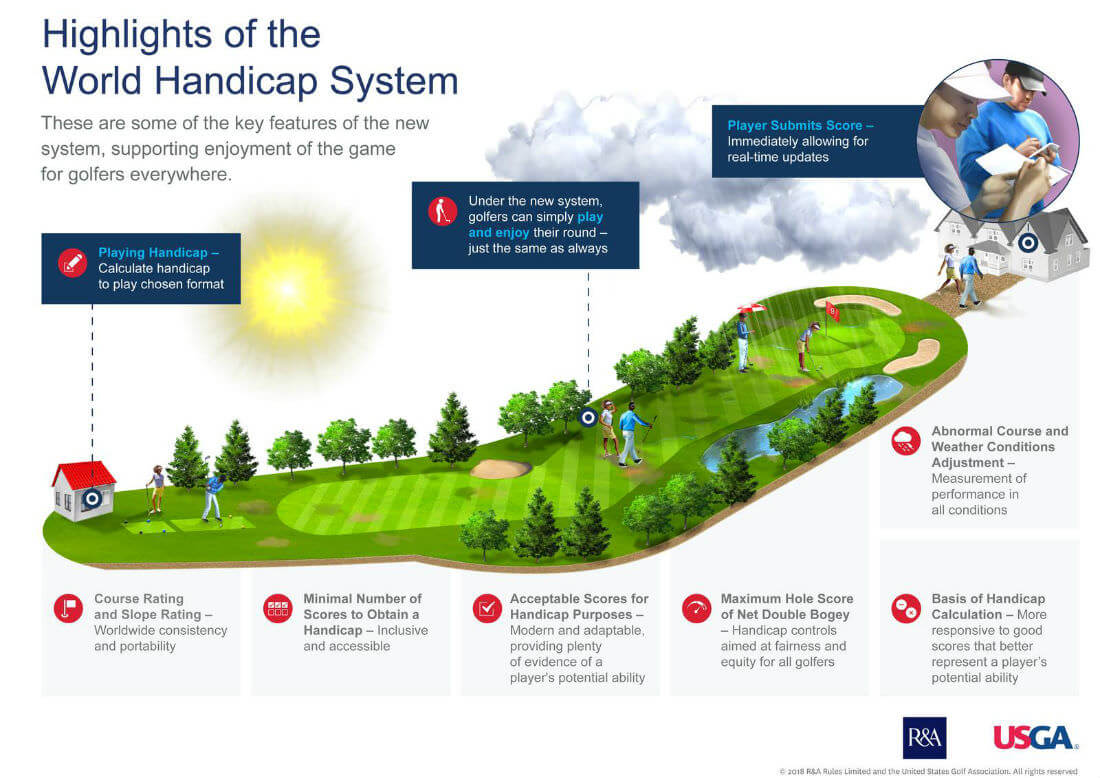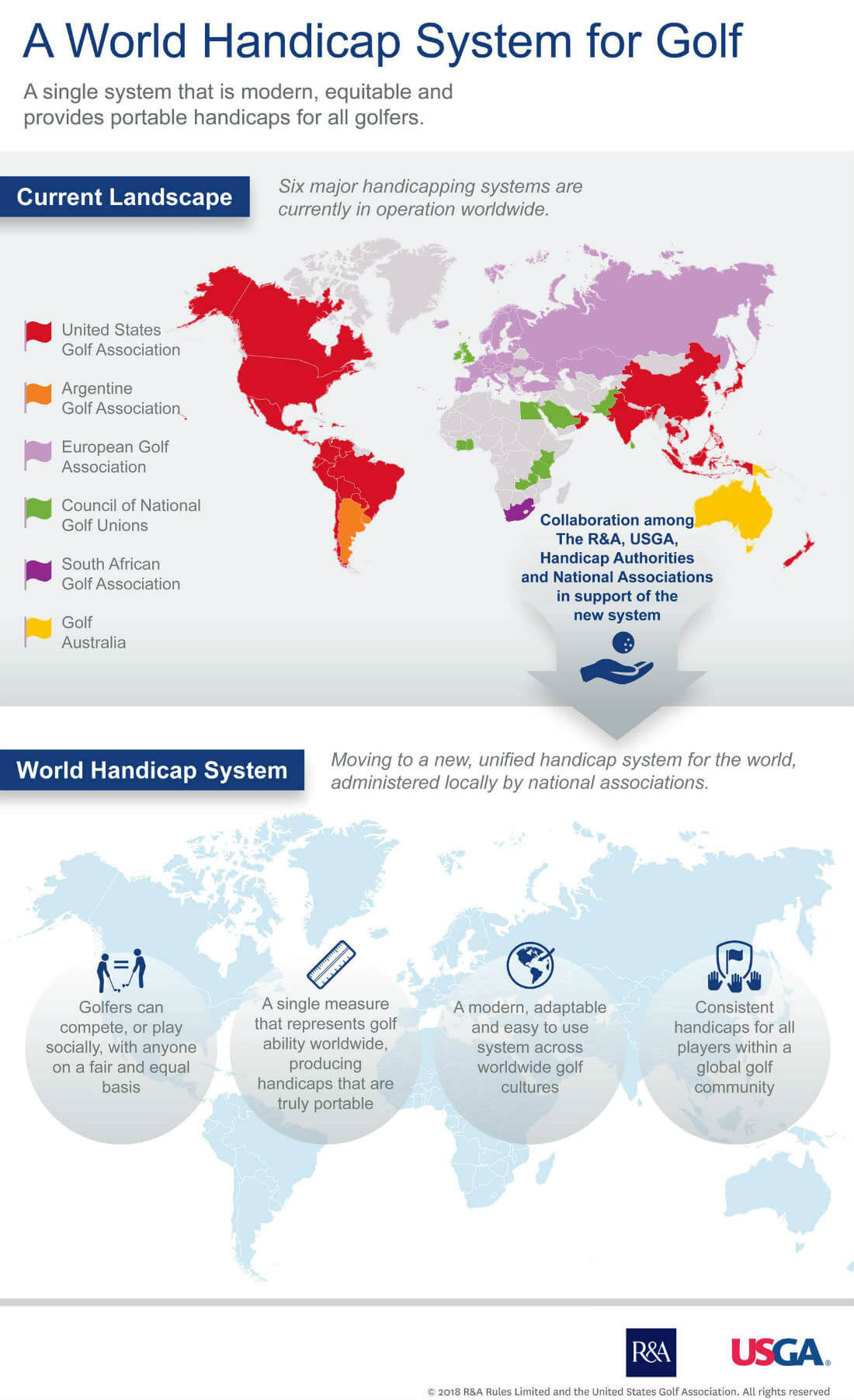USGA, R&A Detail Brand New World Handicap System
- Updated: February 21, 2018

The next time somebody asks you what your handicap is, it may look a little different. On Tuesday, the USGA and R&A announced details for the new proposed World Handicap System, which would provide golfers everywhere with a consistent measure of playing ability.
The new system is scheduled to be implemented in 2020 after a two-year transition period.
“For some time, we’ve heard golfers say, ‘I’m not good enough to have a handicap,’ or ‘I don’t play enough to have a handicap.’ We want to make the right decisions now to encourage a more welcoming and social game … We’re excited to be taking another important step – along with modernizing golf’s Rules – to provide a pathway into the sport, making golf easier to understand and more approachable and enjoyable for everyone to play.” – USGA executive director Mike Davis

Why change it?
The current system is split into 6 different authorities across the world which, while they are well-developed, produce slightly different results: Golf Australia, the Council of National Golf Unions (CONGU) in Great Britain and Ireland, the European Golf Association (EGA), the South African Golf Association (SAGA), the Argentine Golf Association (AAG) and the USGA.
Under the proposal, the new system will be governed by the USGA and R&A and administered locally by national associations around the world and the 6 existing authorities, which represent approximately 15 million golfers in 80 countries who currently maintain a handicap.
“While the six existing handicap systems have generally worked very well locally, on a global basis, their different characteristics have sometimes resulted in inconsistency, with players of the same ability ending up with slightly different handicaps … This has sometimes resulted in unnecessary difficulties and challenges for golfers competing in handicap events or for tournament administrators. A single WHS will pave the way to consistency and portability.” – USGA and R&A press release

What are the details of the new system?
• Flexibility in formats of play, allowing both competitive and recreational rounds to count for handicap purposes and ensuring that a golfer’s handicap is more reflective of potential ability
• A minimal number of scores needed to obtain a new handicap; a recommendation that the number of scores needed to obtain a new handicap be 54 holes from any combination of 18-hole and 9-hole rounds, but with some discretion available for national or regional associations to set a different minimum within their own jurisdiction
• A consistent handicap that is portable from course to course and country to country through worldwide use of the USGA Course and Slope Rating System, already successfully used in more than 80 countries
• An average-based calculation of a handicap, taken from the best eight out of the last 20 scores and factoring in memory of demonstrated ability for better responsiveness and control
• A calculation that considers the impact that abnormal course and weather conditions might have on a player’s performance each day
• Daily handicap revisions, taking account of the course and weather conditions calculation
• A limit of Net Double Bogey on the maximum hole score (for handicapping purposes only)
• A maximum handicap limit of 54.0, regardless of gender, to encourage more golfers to measure and track their performance to increase their enjoyment of the game
“We are working with our partners and national associations to make golf more modern, more accessible and more enjoyable as a sport and the new World Handicap System represents a huge opportunity in this regard … We want to make it more attractive to golfers to obtain a handicap and strip away some of the complexity and variation which can be off-putting for newcomers. Having a handicap, which is easier to understand and is truly portable around the world, can make golf much more enjoyable and is one of the unique selling points of our sport.” – R&A chief executive Martin Slumbers
What’s the timeline for implementation?

[USGA]




